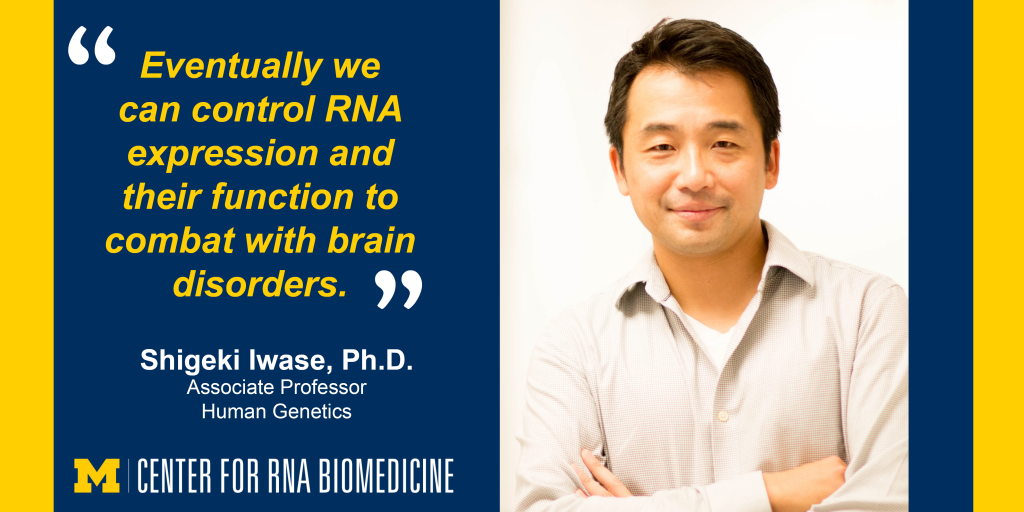RNA Faculty Spotlight – Shigeki Iwase, Human Genetics

Shigeki Iwase, Ph.D., Associate Professor of Human Genetics
Our group studies histone methylation-mediated mechanisms underlying mRNA production, i.e. transcription, in the brain. Given that many histone methyl regulators are mutated in cognitive disorders, our research may yield important insights into how histone methylation is involved in normal and pathological brain development and function.
Visit Lab Website
View Michigan Research Experts Profile
Follow on Twitter: @brainchromatin
- What are your research interests? I am interested in how chromatin are regulated in the brain for precise spatio-temporal RNA production to achieve normal brain development and function.
- Who/what brought you to science? Just always curious and fascinated about living things.
- What advice would you give to students who’d like to get more involved in research? Be curious and ambitious.
- Are there any opportunities for students to engage in your projects, currently or in the future? Yes.
- What skills would they need, and what could they expect to learn? Basic molecular biology, biochemistry, cell biology techniques would be needed. Student will be able to learn genomics, chromatin biochemistry approaches, and how to integrate them into neurobiology.
- What profession other than your own would you like to attempt? A farmer, growling vegetables.
